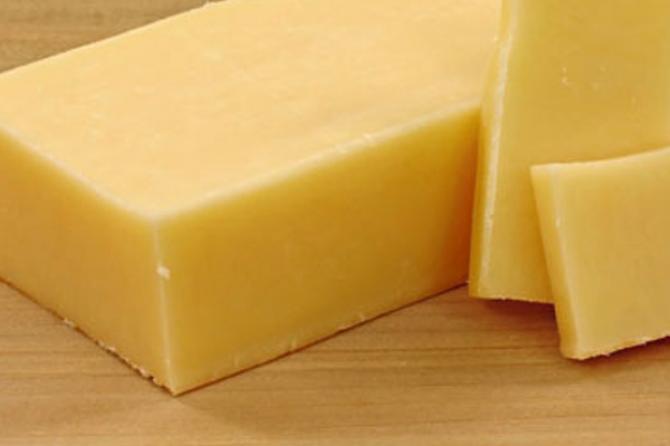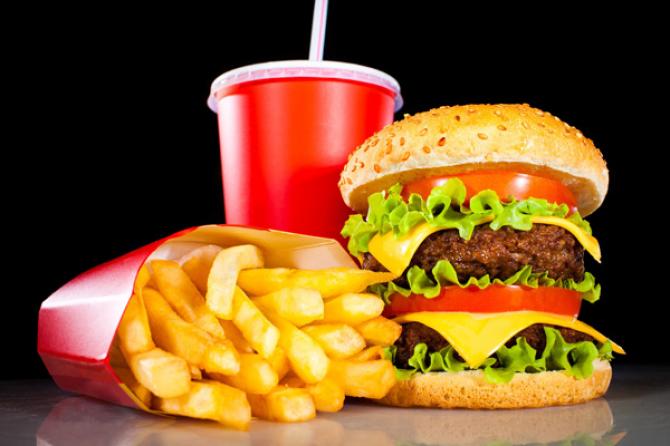Everything that you eat shows up on your face. And everytime you visit a dermatologist, you will hear this. Not just this, but along with some logical explanations like these.
When your arteries are clean from inside, they pump oxygenated blood, resulting in a glowing skin. So, one needs to be very careful about what they eat, as it hinders the proper functioning of your body. For a healthy and younger looking skin, it's important that we stick to healthy foods, green veggies and fruits. Take a look at these food items that you should avoid in order to have a natural, youthful glow.
1. Sugar
 Everyone desires to flaunt blemish-free skin, but if you have a sweet tooth then you better watch out! Dr Fredric Brandt, who counts Madonna, Rupert Everett among his clients says:
Everyone desires to flaunt blemish-free skin, but if you have a sweet tooth then you better watch out! Dr Fredric Brandt, who counts Madonna, Rupert Everett among his clients says:
“Sugar hastens the degradation of elastin and collagen, both of which are key skin proteins. In other words, it actively ages you."
Sugar tends to attach to proteins in the bloodstream and form molecules known as advanced glycation end products. And, since collagen is the most prevalent form of protein available in our body, sugar attaches to them and quickly and kills the elasticity of skin, thus causing wrinkles.
2. Alcohol
 Regardless of the kind of high one enjoys with alcohol, the truth remains that alcohol causes all kinds of skin problems, ageing being the major one. You can discount some years off your skin if you moderate your liquor intake. To begin with, alcohol has zero nutrients. And, when alcohol is metabolised, it widens our blood vessels that carry blood to our face, causing puffiness. Over a period of time, our blood vessels continue to widen and lose elasticity. And therefore, making the skin look dull and wrinkled.
Regardless of the kind of high one enjoys with alcohol, the truth remains that alcohol causes all kinds of skin problems, ageing being the major one. You can discount some years off your skin if you moderate your liquor intake. To begin with, alcohol has zero nutrients. And, when alcohol is metabolised, it widens our blood vessels that carry blood to our face, causing puffiness. Over a period of time, our blood vessels continue to widen and lose elasticity. And therefore, making the skin look dull and wrinkled.
3. Processed foods
 Processed foods include pasteurised dairy products, processed meat, refined grains, etc. They contain phosphates, which are used as preservatives and flavour enhancers. High levels of phosphates accelerate signs of ageing. They also increase age-related complications, such as kidney disease, cardiovascular calcification, and induce severe muscle and skin atrophy. Mohammed Razzaque, from the Department of Medicine, Infection and Immunity at the Harvard School of Dental Medicine says:
Processed foods include pasteurised dairy products, processed meat, refined grains, etc. They contain phosphates, which are used as preservatives and flavour enhancers. High levels of phosphates accelerate signs of ageing. They also increase age-related complications, such as kidney disease, cardiovascular calcification, and induce severe muscle and skin atrophy. Mohammed Razzaque, from the Department of Medicine, Infection and Immunity at the Harvard School of Dental Medicine says:


 Fried food is responsible for weight gain, and also causes oil build up in the body. They also trap the harmful bacteria in your body, leading to acne and breakouts. Moreover, it contains trans fats (also known as artificial fats) that cause skin inflammation and encourage insulin resistance and obesity. So, make sure you cut down on your French fries, potato chips, burgers, etc. if you want to slow down the process of ageing.
Fried food is responsible for weight gain, and also causes oil build up in the body. They also trap the harmful bacteria in your body, leading to acne and breakouts. Moreover, it contains trans fats (also known as artificial fats) that cause skin inflammation and encourage insulin resistance and obesity. So, make sure you cut down on your French fries, potato chips, burgers, etc. if you want to slow down the process of ageing. Caffeine leads to dehydration. It not only takes away moisture from your skin but also increases the production of cortisol. An overdose of cortisol accelerates the ageing process by thinning your skin. So, try and stay away from it. However, if you still want to have your coffee, make sure that you drink enough water to stay hydrated.
Caffeine leads to dehydration. It not only takes away moisture from your skin but also increases the production of cortisol. An overdose of cortisol accelerates the ageing process by thinning your skin. So, try and stay away from it. However, if you still want to have your coffee, make sure that you drink enough water to stay hydrated.
